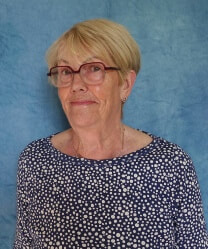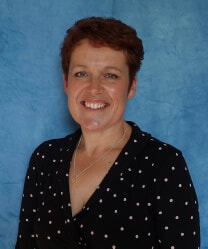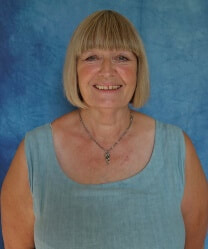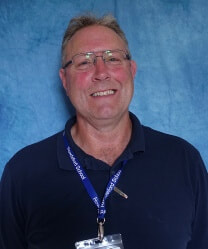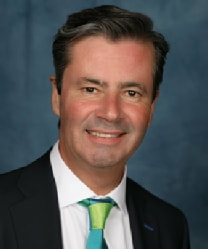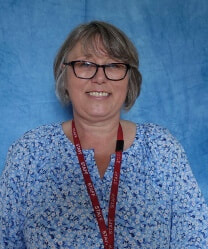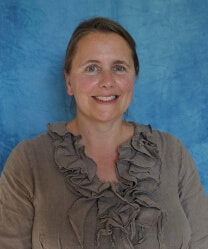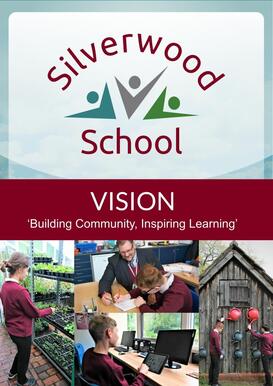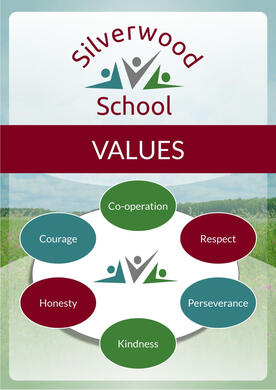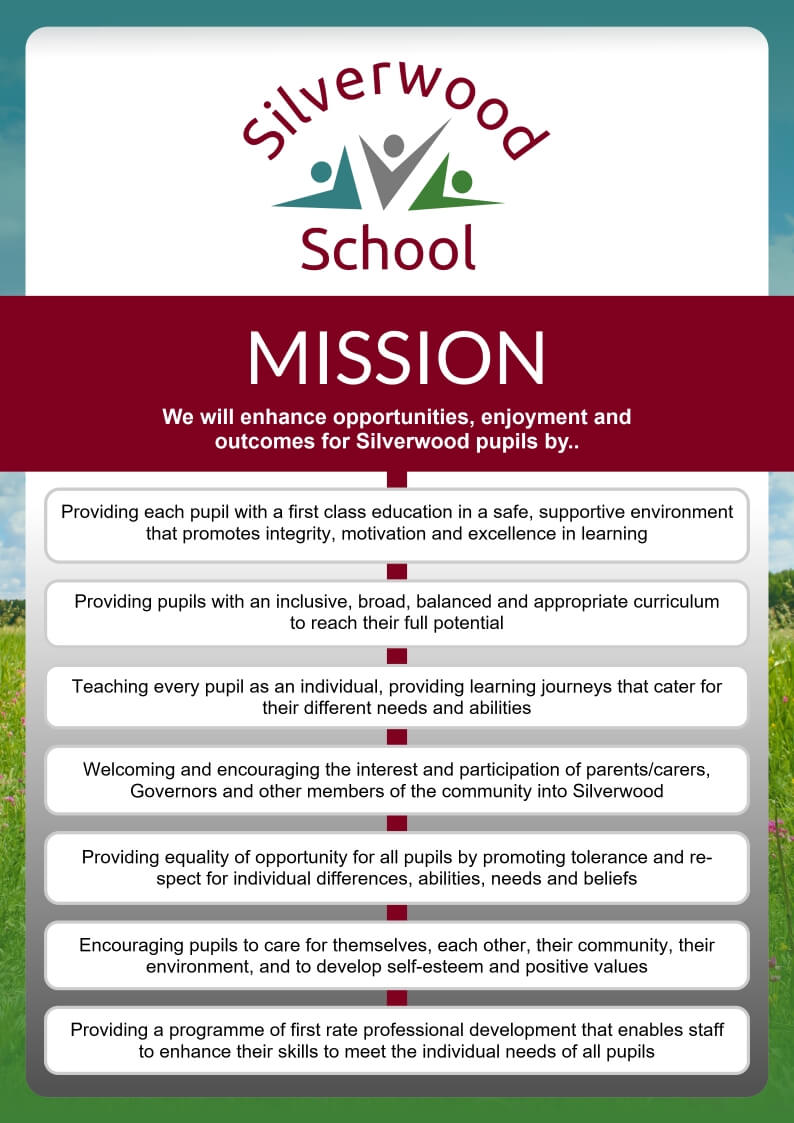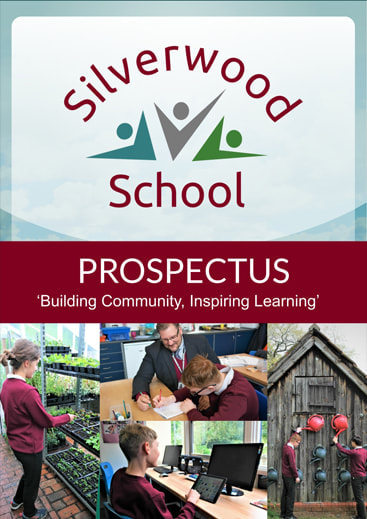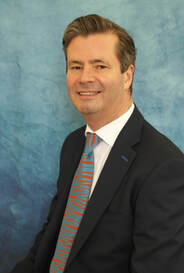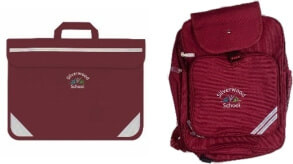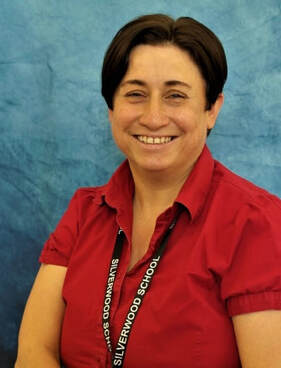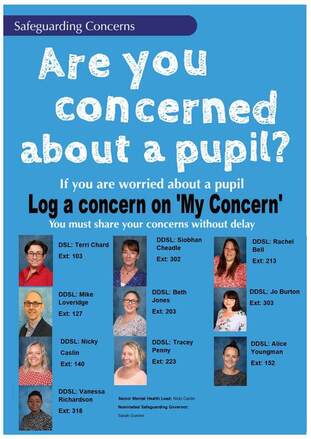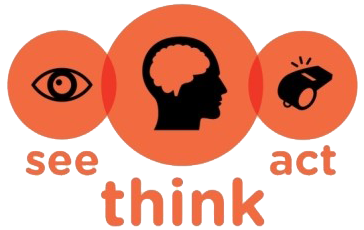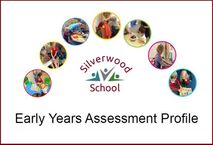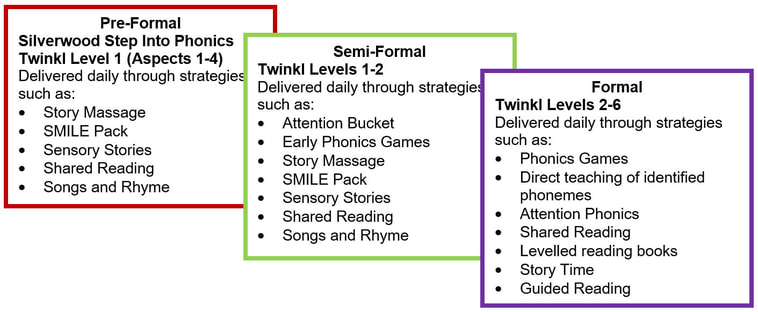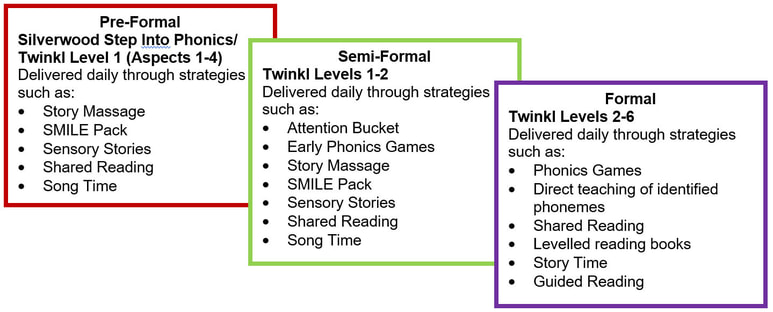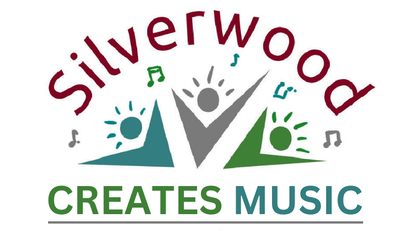|
Outdoor Learning is an important part of the broad and balanced curriculum at Silverwood School. We see the importance of encouraging our pupils to interact with the world around them and develop their ability to manage risks in a safe environment.
Through Outdoor Learning, we work to develop the pupil’s tolerance and respect for each other and their environment as well as developing self-esteem and instilling our positive values. Pupils take part in a wide range of Learning Outside the Classroom (LOtC) activities as part of their normal lessons but also have a dedicated LOtC curriculum. Our Tree Awards have developed as a progressive curriculum that runs throughout KS3 at the Rowde campus. Pupils take part in a range of activities including bushcraft skills, gardening and caring for our farm animals to gain their awards. At KS4 some of our pupils complete a WJEC Preparing for work qualification in Land based studies including Horticulture and Animal care. Pupils also have the option to complete their Duke of Edinburgh Award while at the school which includes Volunteering with woodland management on site, developing their expedition skills and completing their Expedition sections. By supporting our staff through training and development to enhance their skills we are able to provide an award winning program of Outdoor Learning that meets the individual needs of all pupils. The facilities at Silverwood School provide an inspiring learning environment and include a 20 acre campus with woodlands, a Victorian walled garden, a farm animal area and a purpose built Outdoor Learning centre. Our sixth form college has a well-developed sensory garden, including water feature, a poly tunnel and an outdoor café area for pupils to run. The opportunities for LOtC aslo include visits into the local communities to help our students find their place in the community and develop essential life skills. Pupil Premium
You may be aware that the government allocates additional funding to schools in the form of the Pupil Premium. There are various circumstances which can attract Pupil Premium funding, including children who are eligible for Free School Meals (FSM). For full details please get in touch.
Cashless Catering with ParentPay
School Dinners
|
|||||||||||||||||||||||||||||||||||||||||||||||||||||||||||||||||||||||||||||||||||||||||||||||||||||||||||||||||||||||||||||||||||||||||||||||||||||||||||||||||||||||||||||||||||||||||||||||||||||||||||||||||||||||||||||||||||||||||||||||||||||||||||||||||||||||||
Chippenham
|
Rowde
|
Trowbridge
|
||||||||||||||||||||||||||||||||||||||||||||||||||||||||||||||||||||||||||
Latest Governance Structure & Attendance
The governing body meets as a full governing body at least one a term (six terms per annum) – see this year’s meeting dates below.
There are two committees – Standards and Resource each of which also meet five times a year.
Membership of the Committees (along with roles and responsibilities and declared interests) is detailed in the following Governance Structure and Attendance PDF document:
GOVERNANCE STRUCTURE AND ATTENDANCE AS AT OCTOBER 2023
There are two committees – Standards and Resource each of which also meet five times a year.
Membership of the Committees (along with roles and responsibilities and declared interests) is detailed in the following Governance Structure and Attendance PDF document:
GOVERNANCE STRUCTURE AND ATTENDANCE AS AT OCTOBER 2023
The role of the governing body is a strategic one, its key functions are to:
Set the aims and objectives for the school.
Set the policies for achieving those aims and objectives.
Set the target for achieving those aims and objectives.
Monitor and evaluate the progress the school is making towards achievement of its aims and objectives.
Be a source of challenge and support to the executive head teacher and leadership team (a critical friend).
Set the aims and objectives for the school.
Set the policies for achieving those aims and objectives.
Set the target for achieving those aims and objectives.
Monitor and evaluate the progress the school is making towards achievement of its aims and objectives.
Be a source of challenge and support to the executive head teacher and leadership team (a critical friend).
Silverwood School is a member of Challenge Partners
Silverwood School is a member of Challenge Partners who are an education charity, led by practitioners, through which schools collaborate to improve each other and the education system as a whole, so all children benefit. For more details please read the following Governance News Article
Governor Meetings
2023/24
Thursday January 18th - Standards Committee meeting
Wednesday January 25th - Resource Committee meeting
Thursday February 2nd - Full Governing Body meeting
Thursday March 15th - Standards Committee meeting
Wednesday March 22nd - Resource Committee meeting
Thursday March 30th - Full Governing Body meeting
Thursday May 10th - Standards Committee meeting
Wednesday May 17th - Resource Committee meeting
Thursday May 25th - Full Governing Body meeting
Thursday 22nd June - Standards Committee meeting
Thursday 29th June - Resource Committee meeting
Thursday July 6th - Full Governing Body meeting
Thursday January 18th - Standards Committee meeting
Wednesday January 25th - Resource Committee meeting
Thursday February 2nd - Full Governing Body meeting
Thursday March 15th - Standards Committee meeting
Wednesday March 22nd - Resource Committee meeting
Thursday March 30th - Full Governing Body meeting
Thursday May 10th - Standards Committee meeting
Wednesday May 17th - Resource Committee meeting
Thursday May 25th - Full Governing Body meeting
Thursday 22nd June - Standards Committee meeting
Thursday 29th June - Resource Committee meeting
Thursday July 6th - Full Governing Body meeting
Governor Profiles
Chair:
Aileen Bates - Co-opted Governor
Aileen Bates - Co-opted Governor
|
Joint Vice Chair and Chair of Standards Committee:
Co-opted Governor: Sarah Gunner
Co-opted Governor: Sarah Gunner
|
Joint Vice Chair:
Jan Winfield: Co-opted Governor
Jan Winfield: Co-opted Governor
|
Co-opted Governor: Charles Burgess
Chair of Resource Committee
Co-opted Governor: Jeff Parker
Co-opted Governor: Jeff Parker
|
Co-opted Governor: Stuart Hall
|
Parent Governor: Hayley Holland
| Profile coming soon. |
Parent Governor: Mandom Davies
Parent Governor: Vacancy
Staff Governor: Claire Peter
| Profile coming soon. |
LA Governor: Lisa Fryer
|
Executive Headteacher
Ex Officio Governor: Sean McKeown
Ex Officio Governor: Sean McKeown
|
Associate Member: Jane Boulton
|
Clerk to the Governors: Michelle Hocking
|
Instrument of Government
1. The name of the school is Silverwood School
2. The school is a community special school
3. The name of the governing body is "The governing body of Silverwood School"
4. The governing body shall consist of:
5. Total number of governors is Twelve
6. The term of office of co-opted governors is one year in the first instance, increasing to four years thereafter
7. This instrument of government came into effect on 1st September 2020 and was revised on 18th November 2020 and 7th October 2021 (ratified 2nd December 2021) and agreed to revert back on 30th November 2023.
8. This instrument was made by order of Wiltshire Council on 15th December 2023
A copy of the consolidated instrument must be supplied free of charge to every member and associate member of the governing body
2. The school is a community special school
3. The name of the governing body is "The governing body of Silverwood School"
4. The governing body shall consist of:
- Three parent governors
- One LA governor
- One staff governor
- One executive headteacher
- Six co-opted governors
5. Total number of governors is Twelve
6. The term of office of co-opted governors is one year in the first instance, increasing to four years thereafter
7. This instrument of government came into effect on 1st September 2020 and was revised on 18th November 2020 and 7th October 2021 (ratified 2nd December 2021) and agreed to revert back on 30th November 2023.
8. This instrument was made by order of Wiltshire Council on 15th December 2023
A copy of the consolidated instrument must be supplied free of charge to every member and associate member of the governing body
Mission
|
We will enhance opportunities, enjoyment and outcomes for Silverwood pupils by..
|
You may also be interested to view our School Values...
Welcome to Silverwood School
Children and young people join us with a wide range of different needs and bring a wonderful mix of interests and personalities. When learning with us at Silverwood, all children and young people are cared for, valued, challenged and supported to achieve the very best they can.
Silverwood School is a new maintained co-educational special school for pupils aged 4 to 19 years. We formed in September of 2020 with campuses in Rowde, Trowbridge and Chippenham: former schools of Rowdeford School, Larkrise School and St Nicholas School.
We have an ambitious vison to create a truly integrated and inclusive system of outstanding education for all children and young people with special educational needs and disabilities (SEND) in Wiltshire. Wiltshire Council have invested £33 million into our new build at one site, to create a state-of-the-art centre for SEND education, health, care and training across 4-19, with a predominant focus on children with complex SEND.
I hope that our website captures the spirit of Silverwood and provides you with an insight into our school; we warmly encourage families and professionals to visit. We look forward to welcoming you to meet some of our children and staff and to experience, for yourself, the quality of education given to all our children and young people.
If you are interested in finding out more or would like to arrange a visit, please do not hesitate to contact us.
Sean McKeown
Executive Headteacher
Silverwood School is a new maintained co-educational special school for pupils aged 4 to 19 years. We formed in September of 2020 with campuses in Rowde, Trowbridge and Chippenham: former schools of Rowdeford School, Larkrise School and St Nicholas School.
We have an ambitious vison to create a truly integrated and inclusive system of outstanding education for all children and young people with special educational needs and disabilities (SEND) in Wiltshire. Wiltshire Council have invested £33 million into our new build at one site, to create a state-of-the-art centre for SEND education, health, care and training across 4-19, with a predominant focus on children with complex SEND.
I hope that our website captures the spirit of Silverwood and provides you with an insight into our school; we warmly encourage families and professionals to visit. We look forward to welcoming you to meet some of our children and staff and to experience, for yourself, the quality of education given to all our children and young people.
If you are interested in finding out more or would like to arrange a visit, please do not hesitate to contact us.
Sean McKeown
Executive Headteacher
Current Vacancies at Silverwood School
Eteach is a leading international education recruitment service, where teachers, school leaders and support staff look for the latest jobs and where recruiters attract the best employees.
Structure of School Day – All Campuses
|
Transport Arrives:
08.50 Monday to Fridays Lessons begin 09.00 |
Transport Leaves:
15.10 Monday to Fridays |
Term Dates and Teacher Training Dates
Silverwood School term dates are the same for all sites. Please view the attached PDF file for full details:
| term_dates_2023_2024.pdf | |
| File Size: | 157 kb |
| File Type: | |
| term_dates_2024_2025.pdf | |
| File Size: | 109 kb |
| File Type: | |
Parents Evenings
This area is currently under construction, please check back soon for more details.
Chippenham
Check back soon for dates
|
Rowde
Check back soon for dates
|
Trowbridge
Check back soon for dates
|
Transition
We understand that starting at a new school is often a worrying as well as an exciting time. The transition support at Silverwood is matched to the child's age and stage of development.
Where a child may be starting at a different point in the year to the main intake, there will be a bespoke transition package. Where your child is entering with the usual intake, eg. the start of a new academic year, there will be a package created to support the group transition.
Following confirmation of a place at Silverwood, please do not hesitate to contact the school who will be happy to direct you to the Transition Lead to answer individual questions.
Where a child may be starting at a different point in the year to the main intake, there will be a bespoke transition package. Where your child is entering with the usual intake, eg. the start of a new academic year, there will be a package created to support the group transition.
Following confirmation of a place at Silverwood, please do not hesitate to contact the school who will be happy to direct you to the Transition Lead to answer individual questions.
Admissions
Silverwood School caters for pupils with Special Educational needs that cannot be met in mainstream provision. Silverwood School caters for three hundred and sixty pupils from the ages of four to nineteen.
Silverwood School has three campuses: Chippenham, Rowde and Trowbridge, including an associated post-16 provision which is linked to Chippenham Campus.
There is extensive new building work planned for Silverwood School and due for completion in Autumn 2023. This will focus predominantly at the Rowde Campus for additional provision to cater for a wider range of ages and needs.
Each campus caters for specific needs and, therefore, Silverwood School will offer provision at the most appropriate campus to meet pupil need. Where provision is not offered at the closest campus to where the pupil lives, this will be shared with the LA. Where a preference for a campus is named this will be taken into consideration but Silverwood cannot guarantee to accommodate this preference. Campus designation will be reviewed annually.
A pupil may be considered for a place at Silverwood School if:
Silverwood School has three campuses: Chippenham, Rowde and Trowbridge, including an associated post-16 provision which is linked to Chippenham Campus.
There is extensive new building work planned for Silverwood School and due for completion in Autumn 2023. This will focus predominantly at the Rowde Campus for additional provision to cater for a wider range of ages and needs.
Each campus caters for specific needs and, therefore, Silverwood School will offer provision at the most appropriate campus to meet pupil need. Where provision is not offered at the closest campus to where the pupil lives, this will be shared with the LA. Where a preference for a campus is named this will be taken into consideration but Silverwood cannot guarantee to accommodate this preference. Campus designation will be reviewed annually.
A pupil may be considered for a place at Silverwood School if:
|
|
Admissions Policy
Our admissions policy is located in our Policies Area of our website.
Please click the button below to be redirected to our policies area...
Please click the button below to be redirected to our policies area...
Prospective Parent Tour Dates
To view the current prospective parent tour dates, please click here
Arrange A Visit
If you are considering a special school place for your child and wish to look around Silverwood, please use the website to complete the register of interest form so we can direct your query to the correct Open Evening and Campus provision. Please note that we are unable to accommodate tours during the school day except in exceptional circumstances, and this should be directed through your SEND lead worker. Please do see the school Admissions Policy for further details as well as the exit criteria.
Our Values Statement
The Department for Education requires schools “to create and enforce a clear and rigorous expectation to promote the fundamental British values of democracy, the rule of law, individual liberty and mutual respect and tolerance of those with different faiths and beliefs.”
We are committed to promoting fundamental British values through a wide range of explicit and implicit educational activities. British values are promoted through our social, moral, spiritual, and cultural, (SMSC) education which permeates through the schools’ assemblies, curriculum, ethos, student voice, teaching and learning and our commitment to inclusion.
Our approach to promoting fundamental British values follows equal opportunities guidance which guarantees that there will be no discrimination against any individual or group, regardless of faith, ethnicity, gender, sexuality, political or financial status, or similar.
We are committed to promoting fundamental British values through a wide range of explicit and implicit educational activities. British values are promoted through our social, moral, spiritual, and cultural, (SMSC) education which permeates through the schools’ assemblies, curriculum, ethos, student voice, teaching and learning and our commitment to inclusion.
Our approach to promoting fundamental British values follows equal opportunities guidance which guarantees that there will be no discrimination against any individual or group, regardless of faith, ethnicity, gender, sexuality, political or financial status, or similar.
Within this area of our website you will find information about Pupil Premium, Covid Catch-Up Strategy & Primary PE and Sports Premium
Pupil Premium
The Department for Education (DfE) provides additional funding, known as Pupil Premium, in order that specific groups of pupils, who may be disadvantaged by virtue of their family circumstances, can be supported in their progress and attainment.
Please see the documents below relating to our use of Pupil Premium funds
Please see the documents below relating to our use of Pupil Premium funds
Pupil Premium Strategy 2021-2022
Pupil Premium Strategy Statement
| ||||||||||||||
Summer School Funding
Summer School Funding Summary
| ||||||||
Covid Catch-Up Strategy
The Silverwood Catch-Up strategy is targeted at the whole provision, including all pupils, subjects and qualifications with equal importance.
The entire staff team at Silverwood along with the pupils and their families are fully committed to ensuring that the partial school closures and enforced absences have a minimal impact on the pupils’ learning and well-being.
The strategy is underpinned by both internal and external professional advice, and aims to ensure that every member of the Silverwod community regardless of their particular circumstance, receives the education, opportunities and outcomes they deserve.
For more details please read the reports below:
The entire staff team at Silverwood along with the pupils and their families are fully committed to ensuring that the partial school closures and enforced absences have a minimal impact on the pupils’ learning and well-being.
The strategy is underpinned by both internal and external professional advice, and aims to ensure that every member of the Silverwod community regardless of their particular circumstance, receives the education, opportunities and outcomes they deserve.
For more details please read the reports below:
Chippenham
|
Rowde
|
Trowbridge
| ||||||||||||||||||
Primary PE and Sports Premium
Schools must use the funding to make additional and sustainable improvements to the quality of the physical education (PE), physical activity and sport they provide. This includes any carried forward funding from the 2019 to 2020 academic year.
This means that the PE and sport premium should be used to:
1: Develop or add to the PE, physical activity and sport that our school provides
2: Build capacity and capability within the school to ensure that improvements made now will benefit pupils joining our school in future years
Please read the information below which gives details of our PE and sport premium and how we allocated/allocate funding
This means that the PE and sport premium should be used to:
1: Develop or add to the PE, physical activity and sport that our school provides
2: Build capacity and capability within the school to ensure that improvements made now will benefit pupils joining our school in future years
Please read the information below which gives details of our PE and sport premium and how we allocated/allocate funding
Sport Funding ReportsSports Premium 2022-23
| ||||||||||
Equality Information & Objectives
Equality Information is located in our Policies Area of our website.
Please click the button below to be redirected to our policies area...
Please click the button below to be redirected to our policies area...
View our current Ofsted report
(Last inspected on 3rd and 4th July 2023)
(Last inspected on 3rd and 4th July 2023)
For more information about Silverwood & Ofsted, please visit this external link...
This page is currently under construction, please check back soon for more details
The full list of uniform comprises of:
Main School Uniform
| PE and Outdoor Wear if applicable
| Optional Extras
|
Purchase Uniform Online
For any enquiries please contact - enquiries@scholars-uk.com or contact:
| Scholars 2 The Little Brittox Devizes SN10 1AR 01380 722642 | Scholars 3 The Causeway Chippenham SN15 3BT | Scholars 55/56 Fore Street Trowbridge BA14 8ET 01225 753586 |
Did you know?
Silverwood School has teamed up with Chippenham Uniform Exchange to make second-hand school uniform more accessible to all families.
Second-hand uniform can be obtained from Chippenham Uniform Exchange at any time.
They run pop-up shops at various locations throughout the year or uniform can be requested directly by email for collection from school.
All items of uniform are offered for FREE for a voluntary donation to Chippenham Uniform Exchange if this is affordable.
Visit their website, find them on Facebook or email request@chippenhamuniformexchange.org.uk.
Second-hand uniform can be obtained from Chippenham Uniform Exchange at any time.
They run pop-up shops at various locations throughout the year or uniform can be requested directly by email for collection from school.
All items of uniform are offered for FREE for a voluntary donation to Chippenham Uniform Exchange if this is affordable.
Visit their website, find them on Facebook or email request@chippenhamuniformexchange.org.uk.
Do you have any second-hand uniform that you can donate to Chippenham Uniform Exchange? They accept all items of primary and secondary school uniform including logo items, PE kit, shoes and coats. See their website for locations of their community donation points.
Donations can also be taken to any of their pop-up shops.
They will also be holding uniform drives throughout the year at various locations to collect preloved uniform.
Donations can also be taken to any of their pop-up shops.
They will also be holding uniform drives throughout the year at various locations to collect preloved uniform.
Silverwood Safeguarding Lead – Ms Terri Chard.
If you are concerned about your child, or another child please speak to our Safeguarding Lead or a member of the Safeguarding Team.
If you are concerned about your child, or another child please speak to our Safeguarding Lead or a member of the Safeguarding Team.
Or if you have concerns about a child and want to contact someone outside the School please contact:
Wiltshire Multi-Agency Safeguarding Hub (MASH) 0300 456 0108 (08:45am-5pm Mon-Thurs) and (8:45am-4pm) Friday
Emergency Duty Service 0300 456 0100 (5pm - 8.45am)
If a child is in immediate danger or left alone, you should contact the police or call an ambulance immediately on 999.
Wiltshire Multi-Agency Safeguarding Hub (MASH) 0300 456 0108 (08:45am-5pm Mon-Thurs) and (8:45am-4pm) Friday
Emergency Duty Service 0300 456 0100 (5pm - 8.45am)
If a child is in immediate danger or left alone, you should contact the police or call an ambulance immediately on 999.
Designated Safeguarding Lead:
Terri Chard
Designated Governor for Safeguarding:
Sarah Gunner
Terri Chard
Designated Governor for Safeguarding:
Sarah Gunner
| Chippenham Contacts Deputy Designated Safeguarding Officer: Rachel Bell Deputy Designated Safeguarding Officer: Beth Jones Deputy Designated Safeguarding Officer: Amy-Jane McCaughey Deputy Designated Safeguarding Officer: Mike Loveridge Deputy Designated Safeguarding Officer: Tracey Penny | Trowbridge Contacts Deputy Designated Safeguarding Officer: Siobhan Cheadle Deputy Designated Safeguarding Officer: Mike Loveridge Deputy Designated Safeguarding Officer: Vanessa Richardson Deputy Designated Safeguarding Officer: Jo Burton | Rowde Contacts Deputy Designated Safeguarding Officer: Mike Loveridge Deputy Designated Safeguarding Officer: Nicki Caslin Deputy Designated Safeguarding Officer: Alice Youngman |
A great website that is full of useful information is
https://www.wiltshirescb.org.uk/parentscarers/ they can signpost you to:
https://www.wiltshirescb.org.uk/parentscarers/ they can signpost you to:
|
|
We believe that childhood is a special time. Children should be cherished and nurtured and young people should never experience abuse of any kind. We are clear that as a school we have a responsibility to keep them safe and free from harm.
We recognise that the welfare of children is paramount in all the work we do and in the decisions we take for all children, regardless of; age, disability, gender reassignment, race, religion or belief, sex or sexual orientation have an equal right to protection from all types of abuse. We keep the welfare of the child at the centre of our school.
Some of our children are additionally vulnerable because of the impact of previous experiences, their level of dependency, communication needs or other issues relating to physical or learning disability. We will work in partnership with a range of other agencies to promoting young people’s welfare, and ensure they can achieve the best outcomes. Staff are happy to challenge when there are professional disagreements.
At the Silverwood School we have a strong ethos of safeguarding by ensuring it is kept as the school’s top priority. We have a safeguarding team that provides training and facilitates this ethos throughout the school. We ensure that all staff uphold safeguarding best practice through our policies, procedures and code of conduct for staff and volunteers.
We have developed an effective online safety policy; additionally, online safety training is offered to all parents through free safeguarding workshops. We will share current information about safeguarding and good practice with children and their families through personalised sessions with children and group opportunities either through support work or online sessions for families and within the school’s newsletter.
We recruit staff safely, ensuring that all necessary checks are made. We use our procedures to manage any allegations made against staff and volunteers appropriately. We have a highly effective complaints and whistleblowing measures in place.
All staff keep current with their training, and receive a minimum of 2 updates a year. The school uses National policies and documents such as Keeping Children safe in Education 2021 to ensure their staff have the most up to date knowledge. The Designated Safeguarding team have regular supervision to ensure that all staff can safeguard children effectively. They also engage in a wider safeguarding network within the county and the South West.
Any records made or stored are used professionally and securely in line with data protection legislation and guidance. We will use our child protection and safeguarding procedures to share concerns and relevant information with agencies who need to know. We will involve children, young people, parents, families and carers appropriately.
We create and maintain an anti-bullying environment and ensure that we have a policy and procedure to help us deal effectively with any bullying that may arise. We have behaviour policies that ensures that all children feel safe in the school
We provide a safe physical environment for our children. We have built a safeguarding culture where staff and volunteers, children, young people and their families, treat each other with respect and are comfortable about sharing concerns. We use a variety of communication so that everyone’s voice is heard and valued.
We recognise that the welfare of children is paramount in all the work we do and in the decisions we take for all children, regardless of; age, disability, gender reassignment, race, religion or belief, sex or sexual orientation have an equal right to protection from all types of abuse. We keep the welfare of the child at the centre of our school.
Some of our children are additionally vulnerable because of the impact of previous experiences, their level of dependency, communication needs or other issues relating to physical or learning disability. We will work in partnership with a range of other agencies to promoting young people’s welfare, and ensure they can achieve the best outcomes. Staff are happy to challenge when there are professional disagreements.
At the Silverwood School we have a strong ethos of safeguarding by ensuring it is kept as the school’s top priority. We have a safeguarding team that provides training and facilitates this ethos throughout the school. We ensure that all staff uphold safeguarding best practice through our policies, procedures and code of conduct for staff and volunteers.
We have developed an effective online safety policy; additionally, online safety training is offered to all parents through free safeguarding workshops. We will share current information about safeguarding and good practice with children and their families through personalised sessions with children and group opportunities either through support work or online sessions for families and within the school’s newsletter.
We recruit staff safely, ensuring that all necessary checks are made. We use our procedures to manage any allegations made against staff and volunteers appropriately. We have a highly effective complaints and whistleblowing measures in place.
All staff keep current with their training, and receive a minimum of 2 updates a year. The school uses National policies and documents such as Keeping Children safe in Education 2021 to ensure their staff have the most up to date knowledge. The Designated Safeguarding team have regular supervision to ensure that all staff can safeguard children effectively. They also engage in a wider safeguarding network within the county and the South West.
Any records made or stored are used professionally and securely in line with data protection legislation and guidance. We will use our child protection and safeguarding procedures to share concerns and relevant information with agencies who need to know. We will involve children, young people, parents, families and carers appropriately.
We create and maintain an anti-bullying environment and ensure that we have a policy and procedure to help us deal effectively with any bullying that may arise. We have behaviour policies that ensures that all children feel safe in the school
We provide a safe physical environment for our children. We have built a safeguarding culture where staff and volunteers, children, young people and their families, treat each other with respect and are comfortable about sharing concerns. We use a variety of communication so that everyone’s voice is heard and valued.
The following relevant policies can be found in our Polices area:
Anti-bullying,
E-safety & Internet use policy
Safeguarding & Child protection
Safer recruitment
Anti-bullying,
E-safety & Internet use policy
Safeguarding & Child protection
Safer recruitment
Silverwood School is committed to safeguarding and promoting the welfare of its pupils.
All employees undergo rigorous checks during the recruitment process including: an enhanced DBS, references from previous employers, a full employment history including satisfactory explanations relating to any gaps in employment.
All employees undergo rigorous checks during the recruitment process including: an enhanced DBS, references from previous employers, a full employment history including satisfactory explanations relating to any gaps in employment.
Pre-formal Curriculum
The Pre-formal Curriculum is for pupils who have profound and complex needs. The curriculum is designed to meet the needs of pupils through a personalised and adapted approach, valuing the process as much as the achievement and offering flexibility in order to be responsive to the needs of the individual learner.
It focuses on the early communication, social, emotional and cognitive skills that are the foundation of learning. It is a curriculum that recognises the importance of play in a child’s development and the need for sensory and multi-sensory approaches to learning. It acknowledges what learners can do by supporting and developing their strengths and abilities and it is designed to be delivered in an integrated way, incorporating learning, therapy and health needs.
It focuses on the early communication, social, emotional and cognitive skills that are the foundation of learning. It is a curriculum that recognises the importance of play in a child’s development and the need for sensory and multi-sensory approaches to learning. It acknowledges what learners can do by supporting and developing their strengths and abilities and it is designed to be delivered in an integrated way, incorporating learning, therapy and health needs.
Semi-formal Curriculum
The Semi-formal curriculum is delivered through a thematic based approach. It recognises that many of our pupils have a range of complex needs as well as learning difficulties. We meet each pupil’s needs through a personalised and adapted approach delivered through a bespoke curriculum.
For some pupils a social communication, emotional regulation and transactional support focus provides pupils with the skills and tools to be able to manage their own feelings, anxieties and behaviour, as well as understand and utilise effective and appropriate methods of communication. This equips our learners with the ability to meaningfully interact with, and convey needs to, familiar people; as well as those who help to support us in the wider community.
The curriculum is designed to be ambitious, fun, engaging, practical and meaningful and match to pupils learning and developmental needs. It aims to promote life skills, independence, communication and sensory integration activities to prepare children for learning. Regardless of physical, emotional and learning challenges, teaching through the Semi-formal curriculum captures the interest and imagination of our pupils.
For some pupils a social communication, emotional regulation and transactional support focus provides pupils with the skills and tools to be able to manage their own feelings, anxieties and behaviour, as well as understand and utilise effective and appropriate methods of communication. This equips our learners with the ability to meaningfully interact with, and convey needs to, familiar people; as well as those who help to support us in the wider community.
The curriculum is designed to be ambitious, fun, engaging, practical and meaningful and match to pupils learning and developmental needs. It aims to promote life skills, independence, communication and sensory integration activities to prepare children for learning. Regardless of physical, emotional and learning challenges, teaching through the Semi-formal curriculum captures the interest and imagination of our pupils.
Formal Curriculum
The formal curriculum consists of adapted National Curriculum subjects, combining life skills, Learning outside the Classroom and creative subjects. The Formal curriculum is for those pupils who may have a range of needs, but who are cognitively able to access many aspects of a more formal curriculum framework, modified in line with pupil’s developmental level and additional needs. Pupils experience the formal curriculum in both a discrete and theme based approach that aims to develop thinking and independent learning skills enabling us to build learning capacity and lifelong skills. At Silverwood we have adapted subjects and topics to reflect the needs of our pupils, whilst ensuring they provide ambition, challenge and progress.
The formal curriculum, which includes a rich diet of both core subjects and more diverse subjects, works to ensure that the experience of learning is smooth, and that cyclical learning topics support learners in embedding skills and knowledge into long term memory through ‘over learning’ as well as contextualised opportunities for application. Subjects taught underpin the core values through explicit references; practical subjects are designed to support fine and gross motor skills as well as providing pupils with very real opportunities to develop skills for independent living and work beyond school. All subjects are designed to develops pupil’s ability to communicate effectively, and to learn about other communities, countries and cultures; an important part of British Values for Silverwood School.
We support pupils to consider different learning opportunities and apply them to real life situations. If pupils require a more bespoke curriculum, we adapt and tailor it to the needs of the individual. Where pupils show an aptitude in a particular area, they are encouraged to develop this to the highest level.
The formal curriculum at Silverwood goes beyond the academic and focuses on developing skills for life. Pupils at Silverwood will have the opportunity to practice and rehearse these skills in different contexts. Everything we do is there to support every child towards an independent as adulthood. We recognise that for each pupil, this will present different challenges and opportunities, therefore thorough preparation and practice is essential in every subject area as well as ad hoc learning opportunities. We pride ourselves on the responsive and adaptive curriculum we offer every pupil at Silverwood.
Many pupils go onto gain nationally recognised accreditations during key stage 4 and 5.
KS4 Options:
The formal curriculum, which includes a rich diet of both core subjects and more diverse subjects, works to ensure that the experience of learning is smooth, and that cyclical learning topics support learners in embedding skills and knowledge into long term memory through ‘over learning’ as well as contextualised opportunities for application. Subjects taught underpin the core values through explicit references; practical subjects are designed to support fine and gross motor skills as well as providing pupils with very real opportunities to develop skills for independent living and work beyond school. All subjects are designed to develops pupil’s ability to communicate effectively, and to learn about other communities, countries and cultures; an important part of British Values for Silverwood School.
We support pupils to consider different learning opportunities and apply them to real life situations. If pupils require a more bespoke curriculum, we adapt and tailor it to the needs of the individual. Where pupils show an aptitude in a particular area, they are encouraged to develop this to the highest level.
The formal curriculum at Silverwood goes beyond the academic and focuses on developing skills for life. Pupils at Silverwood will have the opportunity to practice and rehearse these skills in different contexts. Everything we do is there to support every child towards an independent as adulthood. We recognise that for each pupil, this will present different challenges and opportunities, therefore thorough preparation and practice is essential in every subject area as well as ad hoc learning opportunities. We pride ourselves on the responsive and adaptive curriculum we offer every pupil at Silverwood.
Many pupils go onto gain nationally recognised accreditations during key stage 4 and 5.
KS4 Options:
| KS4_options_booklet.pdf | |
| File Size: | 4507 kb |
| File Type: | |
- At Silverwood School we believe that all children have the right to access an inclusive Early Year’s curriculum where they are placed with their peers and learn in an active learning environment. Children are supported to develop characteristics of effective learning and become life-long learners.
- We endeavour to ensure that all children leave our Early Years classes with a developing method of communication, a range of self-help skills, a variety of interests and the ability to self-occupy in a meaningful and productive way.
- We value all the experiences and learning that have taken place prior to starting at Silverwood. We use a range of strategies to ensure we gather as much information as possible in order to fully understand each child’s unique starting point.
- At Silverwood we recognise the key areas of development that are linked and contribute to the sum of a student’s cultural capital. There is a high level of focus on the Prime Areas of Learning whilst ensuring our curriculum provides breadth and balance across all seven areas of learning identified in the Early Years Foundation Stage Profile. We ensure there is a suitable balance between adult directed activities and child led learning throughout the day. Children in year R and 1 are supported by Early Years specialists who are skilled in extending learning during daily free flow sessions. We offer children a range of motivating and stimulating activities to explore and engage with, which promote choice making and independent exploratory play skills. Each classroom has different areas of learning including a book area, art area, sensory play, home area, small world and outside space.
- Our EYFS curriculum is based on a set of core quality texts that form the basis of our teaching. All children will be taught pre-phonic and phonics skills and we support children to develop a love for books and reading. Each class participates in weekly book share. Attention Autism principles are used throughout the classes, and children are supported to develop their attention and concentration skills.
- At Silverwood, we adopt a holistic approach and work to support children and families in all areas of their learning. We follow toilet training plans for all children and work with families with areas such as widening restricted diets. We work in partnership with families and invite parents in as often as possible for sessions such as Singing and Stay and Play.
EYFS Curriculum Map Example: An Encounter and Discover Curriculum
We plan a curriculum based on children’s development, predictable interests and their own interests. Through careful observation of the children, we are able to find out their interests and what motivates them and promotes their engagement. We also look at world around us and how it is changing, and we follow current national and international events such as sporting events, Royal events and a range of festivals.
Medium term plan example:
| year_r_medium_term_plan_v1.pdf | |
| File Size: | 295 kb |
| File Type: | |
Useful Links
Here is a link for an Early Years Activity Library
Here is a link for the Statutory framework for the early years foundation stage
Here is a link for the Statutory framework for the early years foundation stage
Characteristics of effective learning
| Playing and Exploring Children will be learning to: • Realise that their actions have an effect on the world, so they want to keep repeating them. • Plan and think ahead about how they will explore or play with objects. • Guide their own thinking and actions by referring to visual aids or by talking to themselves while playing. For example, a child doing a jigsaw might whisper under their breath: “Where does that one go? – I need to find the big horse next.” • Make independent choices. • Bring their own interests and fascinations into early years settings. This helps them to develop their learning. • Respond to new experiences that you bring to their attention. | Active Learning Children will be learning to • Participate in routines • Begin to predict sequences because they know routines. • Show goal-directed behaviour • Begin to correct their mistakes themselves. • Keep on trying when things are difficult. • Repeating something hard on their own; learning through trial and error. • Asking a friend or an adult for help. • Watching an adult or another child, modelling what to do, or listening to their guidance. | Creating and Thinking Critically Children will be learning to: • Take part in simple pretend play • Sort materials • Review their progress as they try to achieve a goal • Solve real problems • Use pretend play to think beyond the ‘here and now’ and to understand another perspective. • Know more, so feel confident about coming up with their own ideas. • Make more links between those ideas. • Concentrate on achieving something that’s important to them. They are increasingly able to control their attention and ignore distractions. |
Transition into Early Years
Open information sessions at Silverwood School (3 x per year)
▼
Pupils issued with EHCP (Education Health Care Plan)
▼
Consultation of school placements
▼
School place offered
▼
TISMs (Transition into School Meetings) (Term 5)
▼
Visits to existing settings (Term 6)
▼
New starter session – Information sessions, including other professionals (for example Learning Disability Team, Wiltshire Parent and Carer Council), support with information sharing paperwork. (Term 6)
Stay and Play sessions (Term 6)
▼
Home visits and outreach work (Beginning of Term 1)
▼
Stay and Play sessions/Phased Inductions (Beginning of Term 1)
▼
Planning meetings with Speech and Language Therapist and other Professionals (Term 1)
▼
Annual Reviews of EHCP (By end of Term 2)
▼
Pupils issued with EHCP (Education Health Care Plan)
▼
Consultation of school placements
▼
School place offered
▼
TISMs (Transition into School Meetings) (Term 5)
▼
Visits to existing settings (Term 6)
▼
New starter session – Information sessions, including other professionals (for example Learning Disability Team, Wiltshire Parent and Carer Council), support with information sharing paperwork. (Term 6)
Stay and Play sessions (Term 6)
▼
Home visits and outreach work (Beginning of Term 1)
▼
Stay and Play sessions/Phased Inductions (Beginning of Term 1)
▼
Planning meetings with Speech and Language Therapist and other Professionals (Term 1)
▼
Annual Reviews of EHCP (By end of Term 2)
A Day in the Life of an EYFS Class at Silverwood…
Satellite Provisions - Trowbridge
At Silverwood School, we aim for all pupils to develop a love of stories, books and reading. Books are an integral part of our curriculum and our classroom environment. We see all of our pupils as readers and we ensure that phonics and spelling is taught across all Key Stages.
What is Phonics?
Phonics is a way of teaching pupils how to read and write. It helps pupils to hear, identify and use different sounds that distinguish one word from another. Written language can be compared to a code, so knowing the sounds of individual letters and how those letters sound when they are combined will help pupils to decode words as they read. Understanding Phonics will also help pupils know which letters to use when they are writing words. Learning this skill is often the beginning of a pupil’s journey to learning to read.
EYFS, Key Stages 1 and 2 Progression
Key Stage 3 and 4
Within the Pre and Semi Formal Pathway, pupils continue to receive Phonics teaching using Twinkl Phonics during each literacy lesson.
Within the Formal Pathway pupils receive dedicated spelling and Phonics teaching as part of each timetabled English lesson. Pupils are assessed regularly and when they have achieved all aspects of Level 6 phonics they will explore challenging texts during Guided Reading sessions.
Within the Formal Pathway pupils receive dedicated spelling and Phonics teaching as part of each timetabled English lesson. Pupils are assessed regularly and when they have achieved all aspects of Level 6 phonics they will explore challenging texts during Guided Reading sessions.
In addition to Phonics lessons, all students across the school have access to:
- In addition to Phonics lessons, all students across the school have access to:
- Additional Twinkl Phonics resources following the Twinkl Systematic Synthetic Phonics (SSP).
- Reading schemes aligned to our chosen SSP mapped across the curriculum pathways.
- Daily shared reading
- A library space and classroom reading areas
- Experience of high quality, age appropriate texts.
- Free access to a wide range reading material for pleasure.
- Opportunities to access further targeted interventions.
- IT devices that augment communication and support reading.
- Parents supported to share books and to read with their children at home and to record their progress in a reading record.
Measuring Impact
Each pupil will be baseline assessed and their phonic knowledge will be assessed and monitored termly. This data will be used to inform provision. Groupings are flexible and pupils are able to move between groups to allow for timely challenge and support.
At Silverwood, we recognise that assessment data will demonstrate the progression of pupils’ reading and spelling skills. The impact of our Phonics provision will also be demonstrated by pupil’s engagement with stories, their enthusiasm for sharing books and their growing independence in engaging with texts at home and school.
At Silverwood, we recognise that assessment data will demonstrate the progression of pupils’ reading and spelling skills. The impact of our Phonics provision will also be demonstrated by pupil’s engagement with stories, their enthusiasm for sharing books and their growing independence in engaging with texts at home and school.
Silverwood School offers a wide range of opportunities for pupils to develop their talents and interests, whilst promoting independence
and interpersonal links with pupils in other areas of the school.
and interpersonal links with pupils in other areas of the school.
SILVERWOOD CREATES MUSIC
is a brand new song-writing and music making programme that will be running across all Silverwood campuses during the 2022/23 academic year.
The programme will be facilitated by Will Lawton from ‘The Rhythm Practice’, a music therapist and song-writer who has been working at the Trowbridge campus for several years.
The aim of this project is to offer music opportunities to small groups of pupils, encouraging creative experimentation and improvisation.
At the heart of the sessions will be an emphasis on free expression and collaboration with a strong therapeutic approach.
As ideas and songs emerge over time, some will be recorded with the aim of producing a Silverwood album and live performances towards the end of the school year.
is a brand new song-writing and music making programme that will be running across all Silverwood campuses during the 2022/23 academic year.
The programme will be facilitated by Will Lawton from ‘The Rhythm Practice’, a music therapist and song-writer who has been working at the Trowbridge campus for several years.
The aim of this project is to offer music opportunities to small groups of pupils, encouraging creative experimentation and improvisation.
At the heart of the sessions will be an emphasis on free expression and collaboration with a strong therapeutic approach.
As ideas and songs emerge over time, some will be recorded with the aim of producing a Silverwood album and live performances towards the end of the school year.
Will Lawton will dedicate one day a week to delivering this project and will be on-site every Tuesday at each campus as follows:
|
Term 1 – Chippenham
Term 2 – Rowde |
Term 3 – Trowbridge
Term 4 – Chippenham |
Term 5 – Rowde
Term 6 – Trowbridge |
For any questions about this project, please get in touch with:
Jo Burton
(Assistant Head of Learning, Silverwood School)
joburton@silverwood.wilts.sch.uk
Will Lawton
(Music Therapist, The Rhythm Practice)
will@therhythmpractice.org
Jo Burton
(Assistant Head of Learning, Silverwood School)
joburton@silverwood.wilts.sch.uk
Will Lawton
(Music Therapist, The Rhythm Practice)
will@therhythmpractice.org
Additional enrichment activities will be online soon
At Silverwood School We Value All Forms Of Communication
We respect how all of our pupils communicate and recognise that communication underpins every child’s social, emotional and educational development.
Silverwood Communication Team
Angela Fairgrieve – HCRG Speech, Language and Communication Therapist
Hannah Simkins – HCRG Speech, Language and Communication Therapist
Becky Nottingham – AAC (Alternative and Augmentative Communication) Co-ordinator
Nicky Caslin – Lead SENCO and Assistant Headteacher
Lucy Hannaford – Communication and Literacy Lead, Formal Curriculum
Rachel Humphrey – Communication and Literacy Lead, Pre and Semi-Formal Curriculum.
Hannah Simkins – HCRG Speech, Language and Communication Therapist
Becky Nottingham – AAC (Alternative and Augmentative Communication) Co-ordinator
Nicky Caslin – Lead SENCO and Assistant Headteacher
Lucy Hannaford – Communication and Literacy Lead, Formal Curriculum
Rachel Humphrey – Communication and Literacy Lead, Pre and Semi-Formal Curriculum.
The Total Communication Approach
Our team aims to support the school community of teachers, TA’s support staff, pupils and their parents and carers, with a ‘Total Communication Approach’ using a variety of strategies in combination to promote understanding and expression for meaningful and enjoyable interactions. The total communication approach is about finding and using the right combination of communication methods for each person. This approach helps our pupils to form connections, ensures successful interactions and supports information exchanges and conversations. A combination of methods are used, which reinforce each other and strengthen meaning for the individual pupil.
Total Communication includes:
Silverwood School Phonics Assessment Framework
| silverwood_phonics_assessment_framework.pdf | |
| File Size: | 174 kb |
| File Type: | |
Phonics and Reading
All pupils at Silverwood School will access either Phonics or Guided Reading sessions as part of the literacy curriculum.
| silverwood_phonics_and_reading_progression_map.pdf | |
| File Size: | 1965 kb |
| File Type: | |
Reading Comprehension
At Silverwood School we use the VIPERS framework as a key element of our literacy curriculum. VIPERS is an acronym to aid the recall of the six key areas which we feel pupils need to know and understand in order to improve their comprehension of texts.
| silverwood_reading_comprehension_progression_map.pdf | |
| File Size: | 304 kb |
| File Type: | |
100 Books to Read Before You Leave Silverwood
We have 100 fiction books that we recommend all our pupils experience/ read before they leave us. These are books voted for and compiled by The Times Educational Supplement and the National Association for the Teaching of English. The books are suitable for children of all ages and include old and new, classics and recently published stories.
| 100_books_to_read_before_you_leave_silverwood.pdf | |
| File Size: | 1708 kb |
| File Type: | |
Spellings
When pupils have a secure knowledge of phonics they will receive spellings to practice in school and at home. Below is the progression document detailing the lists.
| silverwood_spellings_overview.pdf | |
| File Size: | 443 kb |
| File Type: | |
General Information | Our SchoolCurriculum Areas: Communication and Literacy Expressive and Creative Arts Maths and Science Personal, Social, Health Education, Relationships and Sex Education Physical and Personal Development The Wider World Early Years Post 16 Phonics Total Communication Curriculum Assessment Outdoor Learning Plus Programme Enrichment Activities |
Staff & Governors |
Useful Links
Popular Links







